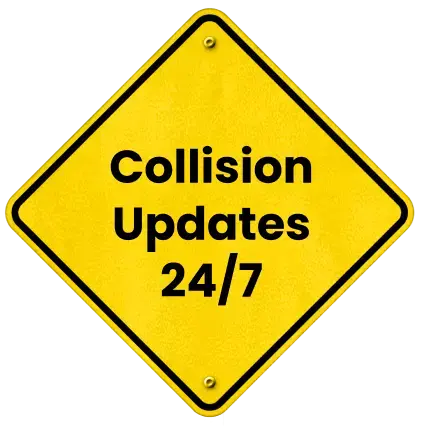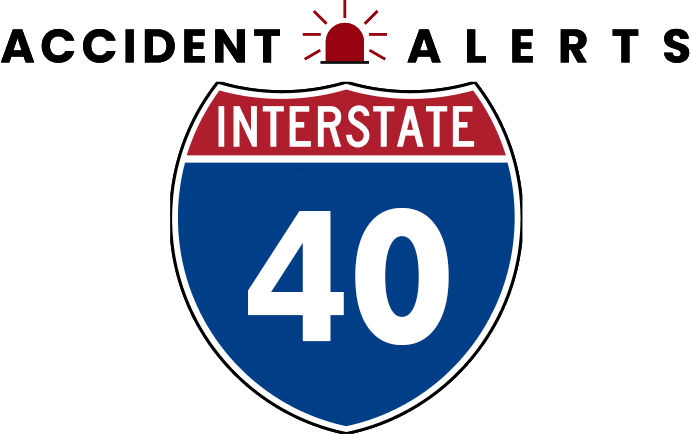
Multi-Vehicle Pileups on I-40: Common Causes and Liability


Interstate 40 is a vital artery stretching across the country from Barstow, California, to Wilmington, North Carolina, serving millions of drivers each year. While the highway facilitates commerce and travel, it is also prone to serious accidents, including multi-car crashes and chain-reaction accidents on I-40. Among the most severe are multi-vehicle pileups, which can result in devastating injuries, significant property damage, and complex liability issues.
Understanding why these accidents happen and what steps victims can take afterward is crucial. Certain sections of I-40 are especially prone to I-40 pileup crashes due to factors like weather, traffic density, and roadway conditions. By learning about these risks, drivers and families can take steps to prevent accidents and protect themselves when incidents occur.
Common Causes of Multi-Vehicle Pileups on I-40
Several conditions contribute to multi-car crashes on I-40, including environmental, mechanical, and human factors. Fog is common in the Appalachian Mountains, the Ozarks, and higher elevations of New Mexico and Arizona. Thick fog can drastically reduce reaction times, making sudden stops nearly impossible for drivers traveling at highway speeds.
Sections of I-40 in Tennessee, North Carolina, and northern New Mexico are particularly vulnerable during the winter months. Ice, black ice, or compacted snow can cause vehicles to slide out of control, often leading to chain-reaction collisions. High speeds further reduce the ability to react to sudden stops or slowed traffic, increasing the severity of pileups, especially on long, straight rural stretches.
Urban interchanges in cities such as Memphis, Oklahoma City, and Raleigh see heavy traffic and frequent lane changes, where a single sudden stop can escalate into a multi-vehicle collision. Driver distraction and fatigue also play a major role, as inattentive drivers may fail to notice slowed traffic or changing road conditions.
Regional Hotspots and Seasonal Risks
Certain stretches of I-40 are more prone to pileups than others. In the Appalachian Mountains near Asheville, North Carolina, dense fog, steep grades, and winding roads make sudden chain-reaction accidents more likely. Northern New Mexico’s high-altitude passes experience sudden snowstorms and icy conditions during the winter, while Arizona’s desert regions, particularly near Flagstaff, can see truck rollovers due to strong winds and steep grades.
In Tennessee, urban interchanges and heavily trafficked routes through Memphis and Knoxville increase the chance of collisions during rush hour or in adverse weather. Seasonal storms in Arkansas and the Ozarks, including heavy rain and high winds, further heighten risks, especially for commercial trucks navigating narrow curves or hilly terrain.
Preventing Pileups on I-40
While not all accidents can be avoided, travelers can take precautions to reduce the likelihood of I-40 pileup crashes. Drive at safe speeds, adjust for weather and traffic, and increase following distances, particularly in fog, rain, or icy conditions. Stay alert, avoid distractions, and take breaks on long stretches to prevent fatigue. Checking forecasts and road conditions is especially important in regions prone to snow, ice, or fog.
Long-distance travelers should also keep emergency supplies on hand, including water, blankets, and a first aid kit, particularly when driving through rural or mountainous areas. Commercial vehicle drivers should inspect their trucks and trailers before trips, ensuring brakes, tires, and cargo are secure. Preparing vehicles for winter or adverse weather conditions, such as ensuring tires are properly inflated and brakes are functioning, further reduces risks.
Liability in Multi-Vehicle Crashes
Determining liability in chain-reaction accidents on I-40 can be complex. Multiple drivers may share responsibility, depending on who caused the initial collision and whether others failed to maintain safe distances or drive responsibly.
Liability may also extend to third parties if poor road conditions, construction zones, or faulty vehicle maintenance contributed to the crash. Critical evidence includes police reports, photographs of the scene, witness statements, and vehicle data recorders that track speed, braking, and steering inputs before a crash. Collecting and preserving this evidence promptly is essential for victims seeking compensation for injuries, property damage, or other losses.
Victims should document not only the physical damages but also any emotional or financial impact. This may include missed work, medical expenses, and rehabilitation costs. Keeping a detailed record strengthens any compensation claim and ensures that all affected parties are considered during legal proceedings.
Steps for Victims After a Pileup on I-40
After a multi-car crash on I-40, victims should prioritize safety, health, and legal protection. Seek medical attention immediately, even for minor injuries, and document the scene with photos and notes about road and weather conditions. Gather contact and insurance information from other drivers and witnesses, and file a police report. Also, consulting an experienced attorney can provide guidance, ensure proper evidence collection, and help secure fair compensation.
Families traveling with children or elderly passengers should make their safety a top priority. This includes checking on all passengers, arranging alternate transportation if needed, and ensuring that children are safely secured in car seats or booster seats. Emotional support and reassurance are also important, as multi-vehicle accidents can be traumatic, particularly for young or vulnerable passengers.
Connect with an I-40 Accident Lawyer
Even with careful driving, accidents can still occur, and the aftermath of a multi-car crash on I-40 can be overwhelming for victims and their families. Awareness, preparation, and caution are essential when traveling on I-40, particularly in known high-risk areas and during adverse weather such as fog, snow, or heavy rain.
After an accident, individuals often face not only physical injuries but also emotional stress, property damage, and the challenge of navigating insurance and legal processes. Those affected can greatly benefit from professional guidance to help gather and preserve evidence, determine liability, and pursue fair compensation for medical expenses, lost wages, and vehicle repairs.
You can get in touch with an I-40 accident attorney today for a free consultation. Our team will provide crucial support, ensure that victims understand their rights, avoid common pitfalls, and receive the personalized assistance needed to recover fully from the incident. With the right legal guidance, families can focus on healing and moving forward while having confidence that their case is being handled effectively.
